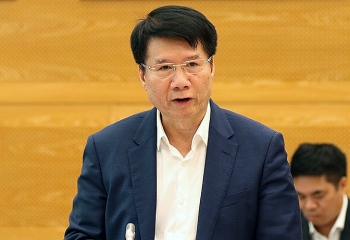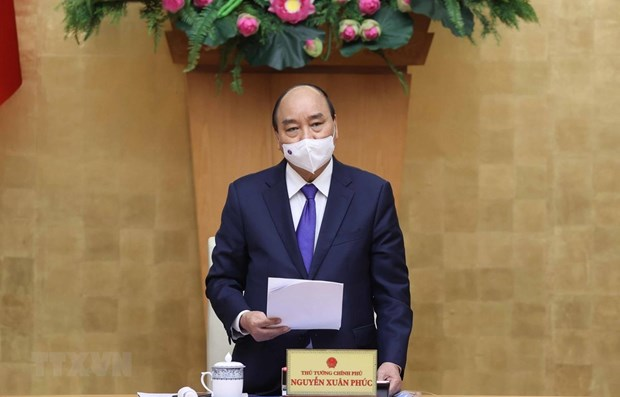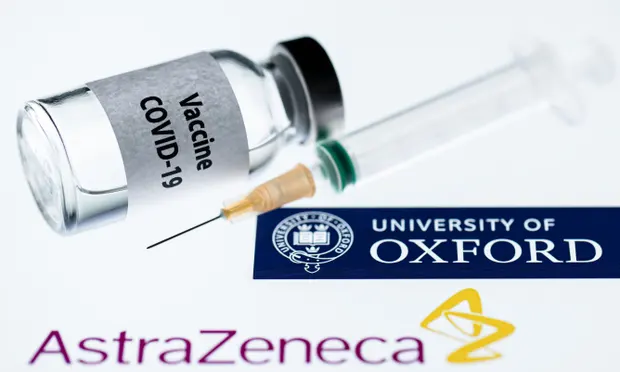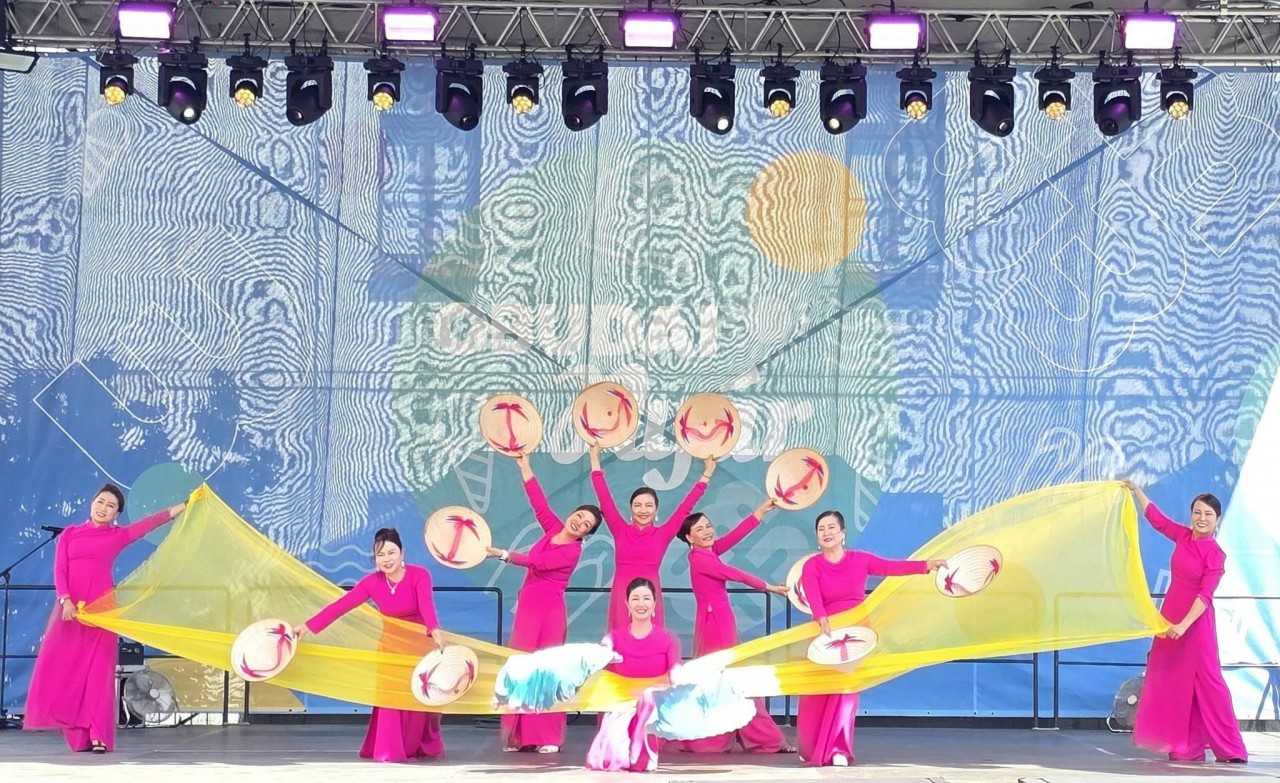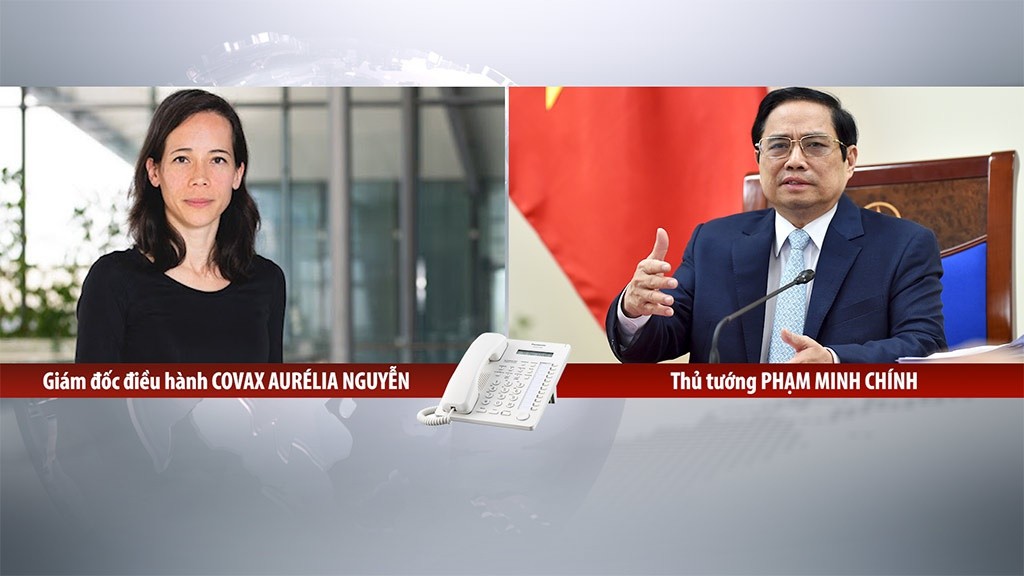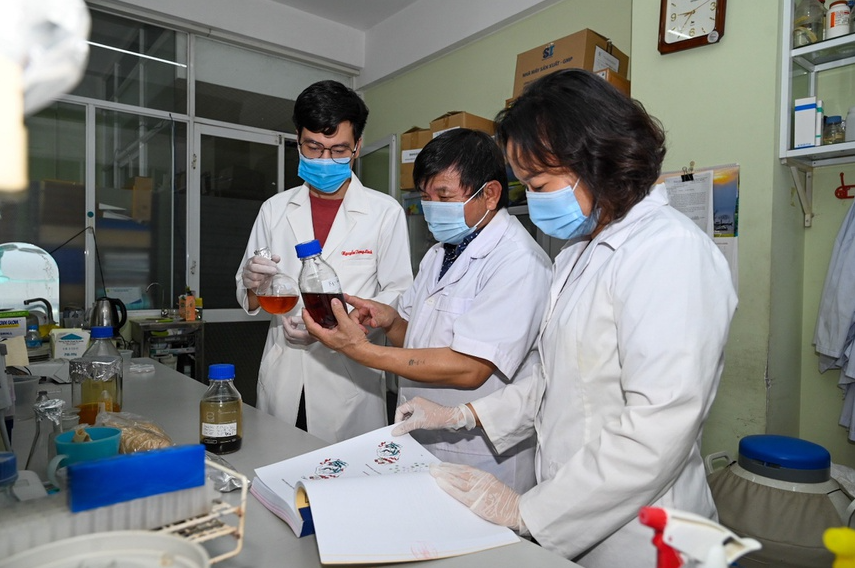UK's first shipment of Chinese vaccine arrives to Hungary
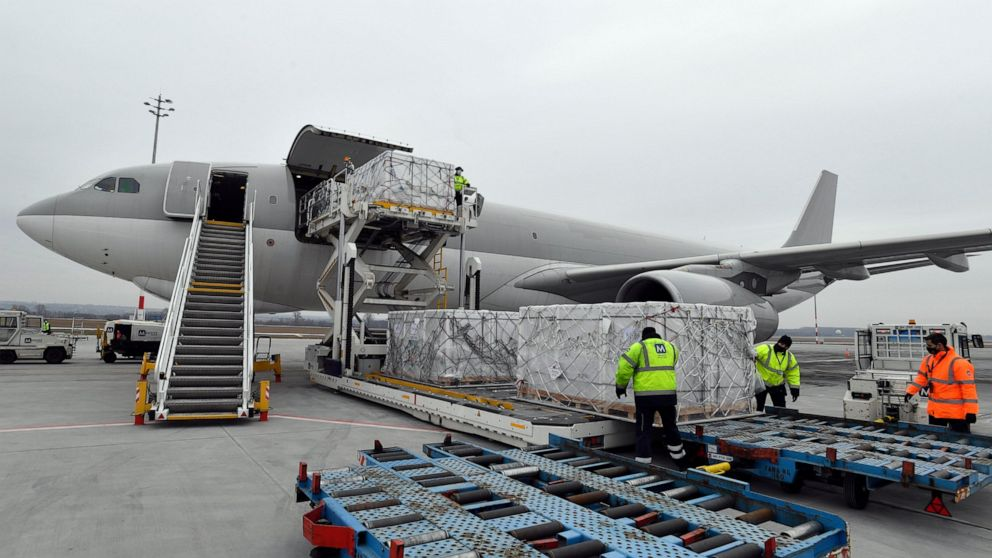 |
| Boxes containing vaccines are unloaded from a Hungarian Airbus 330 cargo plane as the first batch of the vaccine against the new coronavirus produced by Sinopharm of China arrives at Budapest Liszt Ferenc International Airport in Budapest, Hungary, Tuesday, Feb. 16, 2021. The vaccine will not be used without its examination and approval by the National Public Health Center of Hungary. (Zoltan Mathe/MTI via AP) |
According to APNews, a jet carrying 550,000 vaccine doses developed by the Chinese state-owned company Sinopharm landed at Budapest’s international airport after flying in from Beijing. The shipment is enough to treat 275,000 people with the two-dose jab, Dr. Agnes Galgoczy of the National Public Health Center told a press conference.
“With this vaccine, five different types are now available in Hungary so that we may get as many people vaccinated as quickly as possible,” Galgoczy said, adding that vaccine shots won't begin until the shipment is evaluated by the National Public Health Center.
Hungarian health authorities were the first in the EU to approve the Sinopharm jab for emergency use on Jan. 29. That came after a government decree streamlined Hungary’s vaccine approval process by allowing any vaccine administered to at least 1 million people worldwide to be used without undergoing review by the country’s medicines regulator.
The country expects to receive 5 million total doses of the Sinopharm vaccine over the next four months, enough to treat 2.5 million people in the country of nearly 10 million.
Hungarian officials, including Prime Minister Viktor Orban, have been critical of the EU's common vaccine procurement program, claiming the bloc's slow rollout of shots is costing lives.
“If vaccines aren’t coming from Brussels, we must obtain them from elsewhere ... One cannot allow Hungarians to die simply because Brussels is too slow in procuring vaccines,” Orban said last month.
On Friday, Orban claimed these additional vaccines from Russia and China will enable Hungary to vaccinate millions more people by the end of May than other European countries with similar populations.
“As things stand now, (we can vaccinate) 6.8 million people by the end of May or beginning of June,” Orban said in a radio interview. “I think this is huge.”
Orban earlier said he would personally choose to be inoculated with the Sinopharm vaccine since he trusts it the most.
“I think the Chinese have known this virus for the longest and they probably know it the best,” he said last month.
The Sinopharm vaccine, which the developer says is nearly 80% effective, is already in use in Hungary’s non-EU neighbor Serbia, where around half a million people, including ethnic Hungarians, have already received the jab. The company has not yet released data on the results of the vaccine's Stage 3 trials.
The new vaccines shipment represents around 40% of all COVID-19 vaccine doses that Hungary has received so far, and makes Sinopharm nearly equally prevalent in Hungary as the Pfizer-BioNtech vaccine.
But recent polling shows that some Hungarians are reluctant to receive the Sinopharm jab. A survey of 1,000 people in the capital of Budapest by pollster Median and the 21 Research Center showed that among those willing to receive a vaccine, only 27% would take a Chinese vaccine, compared to 43% a Russian vaccine and 84% a jab developed in Western countries. The poll had a margin of error of plus or minus 3%.
Sinopharm’s efficacy against Coronavirus
 |
| A Sinopharm production plant in Beijing.Zhang Yuwei/Xinhua, via Associated Press |
In early 2020, the Beijing Institute of Biological Products created an inactivated coronavirus vaccine called BBIBP-CorV. Clinical trials run by the state-owned company Sinopharm showed that it had an efficacy rate of 79 percent. China approved the vaccine, and soon began exporting it to other countries, NYTimes reported.
A Vaccine Made From Coronaviruses
BBIBP-CorV works by teaching the immune system to make antibodies against the SARS-CoV-2 coronavirus. The antibodies attach to viral proteins, such as the so-called spike proteins that stud its surface.
To create BBIBP-CorV, the Beijing Institute researchers obtained three variants of the coronavirus from patients in Chinese hospitals. They picked one of the variants because it was able to multiply quickly in monkey kidney cells grown in bioreactor tanks.
Killing the Virus
Once the researchers produced large stocks of the coronaviruses, they doused them with a chemical called beta-propiolactone. The compound disabled the coronaviruses by bonding to their genes. The inactivated coronaviruses could no longer replicate. But their proteins, including spike, remained intact.
The researchers then drew off the inactivated viruses and mixed them with a tiny amount of an aluminum-based compound called an adjuvant. Adjuvants stimulate the immune system to boost its response to a vaccine.
Inactivated viruses have been used for over a century. Jonas Salk used them to create his polio vaccine in the 1950s, and they’re the bases for vaccines against other diseases including rabies and hepatitis A.
Prompting an Immune Response
Because the coronaviruses in BBIBP-CorV are dead, they can be injected into the arm without causing Covid-19. Once inside the body, some of the inactivated viruses are swallowed up by a type of immune cell called an antigen-presenting cell.
The antigen-presenting cell tears the coronavirus apart and displays some of its fragments on its surface. A so-called helper T cell may detect the fragment. If the fragment fits into one of its surface proteins, the T cell becomes activated and can help recruit other immune cells to respond to the vaccine.
Making Antibodies
Another type of immune cell, called a B cell, may also encounter the inactivated coronavirus. B cells have surface proteins in a huge variety of shapes, and a few might have the right shape to latch onto the coronavirus. When a B cell locks on, it can pull part or all of the virus inside and present coronavirus fragments on its surface.
A helper T cell activated against the coronavirus can latch onto the same fragment. When that happens, the B cell gets activated, too. It proliferates and pours out antibodies that have the same shape as their surface proteins.
Stopping the Virus
Once vaccinated with BBIBP-CorV, the immune system can respond to an infection of live coronaviruses. B cells produce antibodies that stick to the invaders. Antibodies that target the spike protein can prevent the virus from entering cells. Other kinds of antibodies may block the virus by other means.
Remembering the Virus
Sinopharm’s clinical trials have demonstrated that BBIBP-CorV can protect people against Covid-19. But no one can yet say how long that protection lasts. It’s possible that the level of antibodies drops over the course of months. But the immune system also contains special cells called memory B cells that might retain information about the coronavirus for years or even decades.
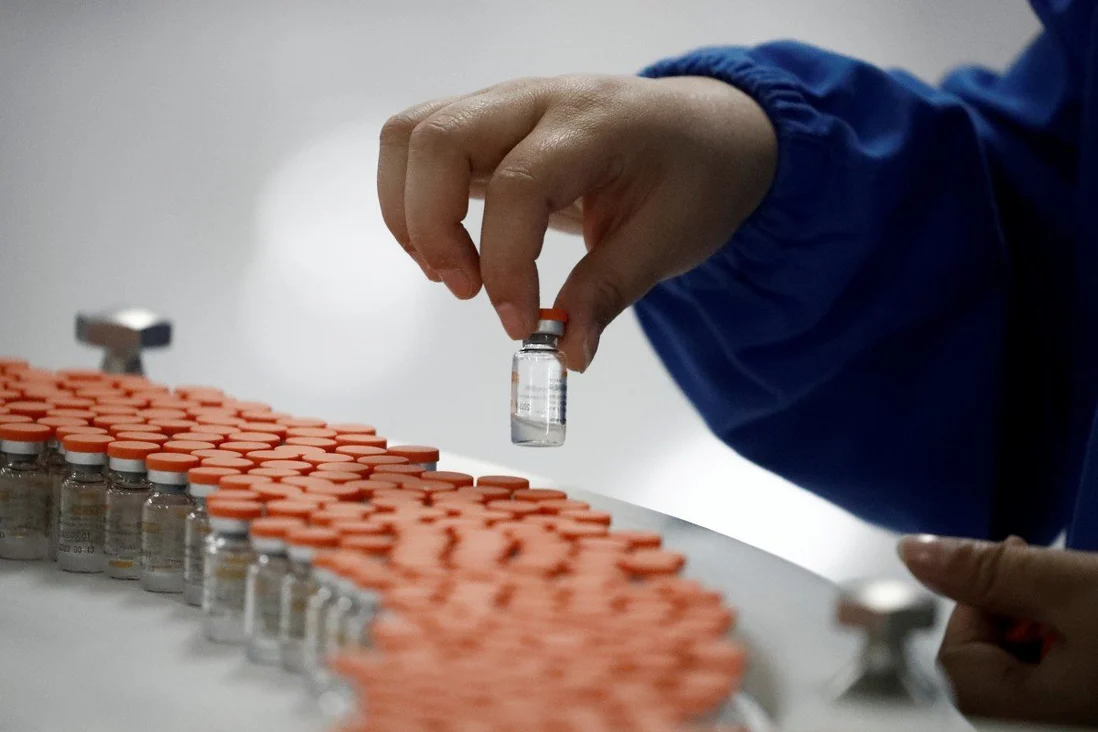 | China: Police detain 80 for selling fake Covid vaccines, worries over vaccines's reliability Forgery Covid vaccines raises concerns about the efficacy and reliability of Chinese shots and local supplies, sparkling skeptisim among Chinese citizens. |
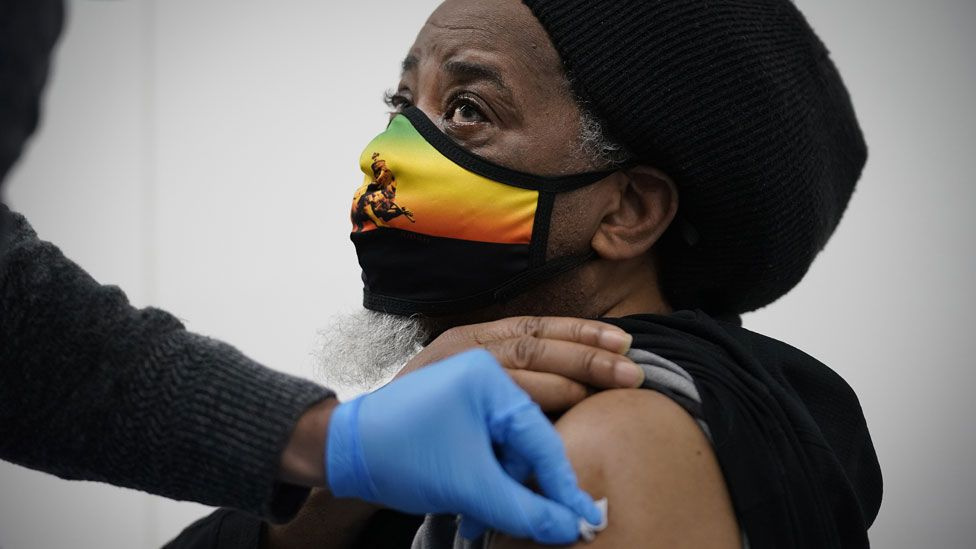 | Covid - 19: Oxford AstraZeneca vaccines shows effectiveness in slowing down the virus Recent UK researches has revealed that Oxford - AstraZeneca vaccines have sucessfully slowed down the spread of Coronavirus, ather than simply preventing symptomatic infections. |
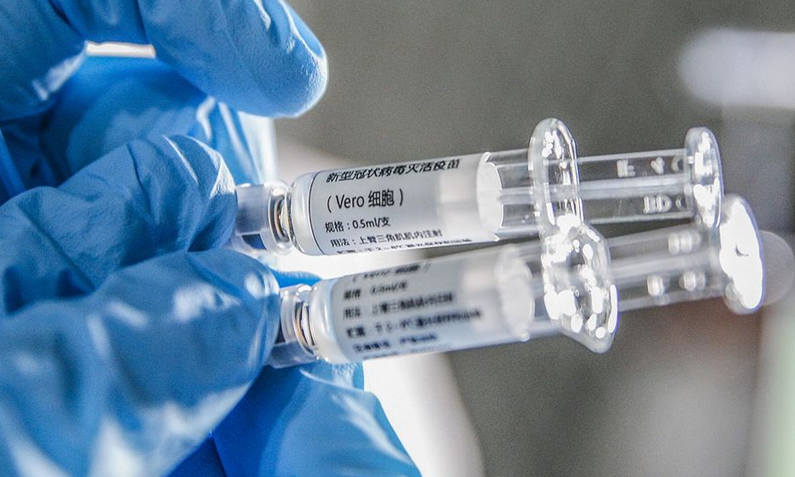 | Updates on World COVID vaccines: China approves Sinopharm, UK authorizes AstraZeneca Chinese regulators have approved the country's first homegrown coronavirus vaccine, developed by state-owned pharmaceutical giant Sinopharm, while Health officials in the U.K. authorized the AstraZeneca-Oxford ... |
Recommended
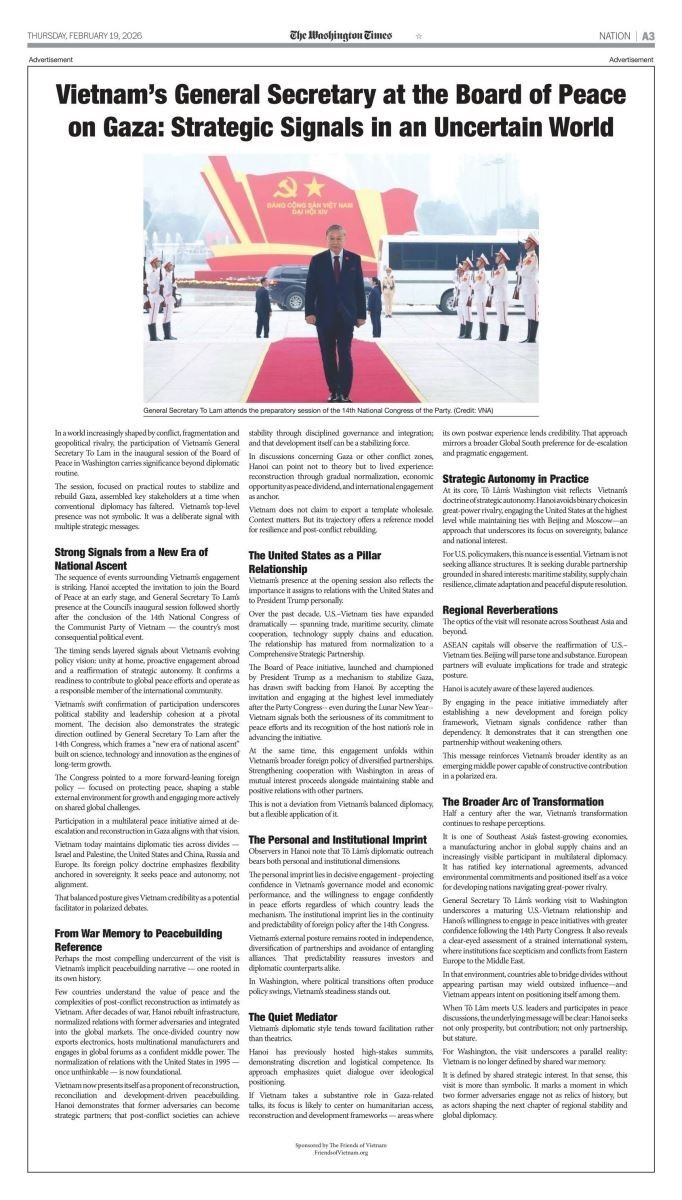 World
World
US Media Commend Vietnam’s Role in Global Peace Efforts
 World
World
Vietnam Officially Becomes Association Country of International Energy Agency (IEA)
 World
World
Key pacts signed as PM Modi hosts France's Macron for plane cooperation
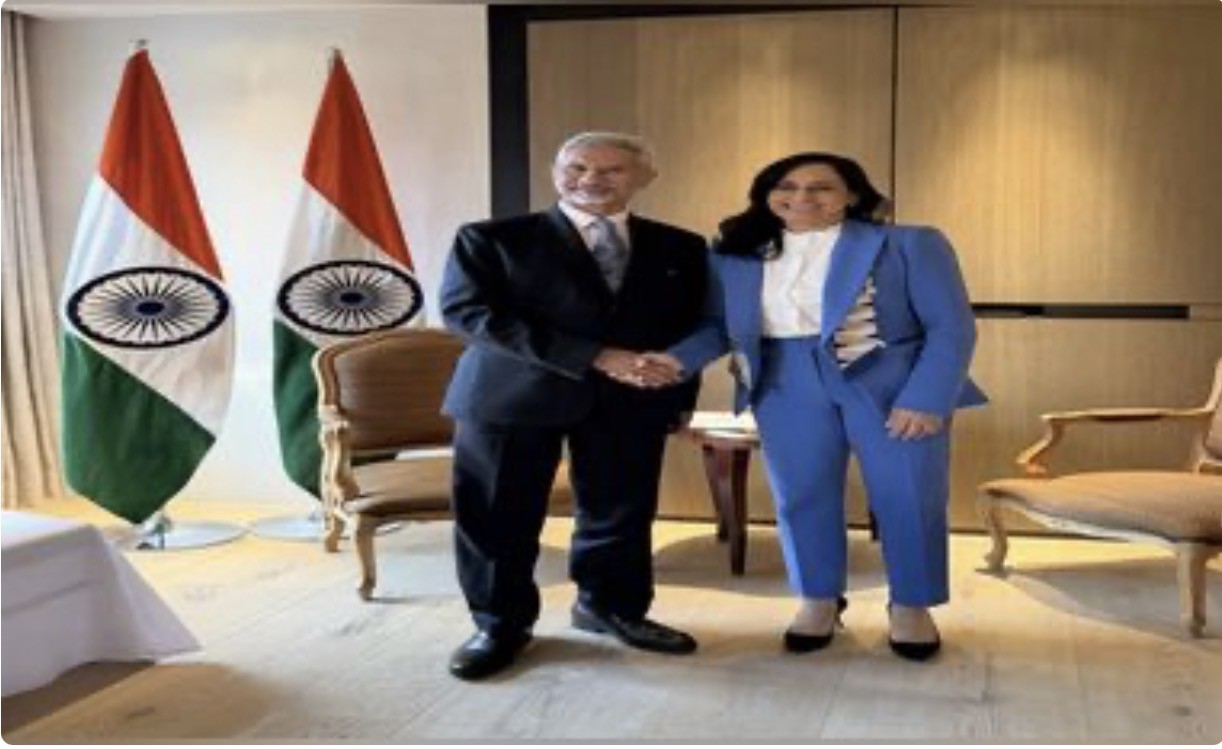 World
World
India, Canada commit to strengthening bilateral ties, discuss trade
 World
World
AI Summit India 2026 Live Updates: ‘Bringing the world together,’ PM Modi welcomes leaders as India hosts AI summit
 World
World
Safran ready to open India engine production in Rafale deal
 World
World
Nepal interim PM Sushila Karki thanks India for March support
 World
World

